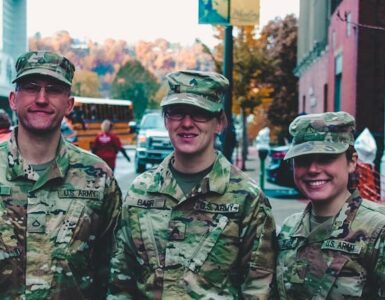In partnership with the University of Arizona, the National 4-H Council released a report focusing on the 4-H Healthy Habits program. The program is funded through grants from the Walmart Foundation and engages youth in underserved areas to educate them about the importance of nutrition and physical activity.
The report, The Positive Development of Youth: Comprehensive Findings from the 4-H Study of Positive Youth Development, focuses on a variety of key learnings, including positive youth development in disadvantaged areas.
“Our major learnings were around how programs can really be strategic in their thinking about the people. So, both the people internally that they are putting on staff and then the people and organizations that they’re partnering within the community either for recruitment or to go out and do their program on site at those places,” said Madeleine deBlois, UA Frances McClelland Institute for Children, Youth, and Families research scientist.
Understanding the community and engaging with children and youth who represent that community allows 4-H Healthy Habits to work with those in need to create healthier communities.
“One of the things that we were particularly interested in was the two arms of programming and how youths of color are represented proportionally in those two arms,” deBlois said.
For the younger children involved in the program, a 4-H leader will provide educational activities.
deBlois explained that throughout the states that offer this program, 4-H has been successful in engaging with underrepresented children.
Youth involved in the Healthy Habits program can take on a leadership role- often referred to as ‘team leader’- that allows for more engagement and development.
“In many states youths of color were less well-represented among the team leader population than they were among the youth served in the other programming,” deBlois said.
While 4-H in some states faced challenges connecting with youth to participate in the program as leaders, Arizona found ways to form that relationship.
“Arizona is one of the states that we did look at and they do have quite a robust program that does emphasize the team leaders and use the team leaders in the capacity as agents of engagement,” said Michele Walsh, associate professor in family studies and human development & specialist for evaluation for Cooperative Extension.
She added, “So, they really do apply that positive youth development framework of engaging teams of leaders and around the career development portions of that- that is one of the areas that we know Arizona does have a focus on.”
deBlois explained that the Arizona programming successfully encouraged the youth, or team leaders, to deliver lessons about healthy eating and active living to the elementary school students.
“So, the team leaders had all of the leadership development and public speaking and planning and preparation skills,” she said.
















Add comment